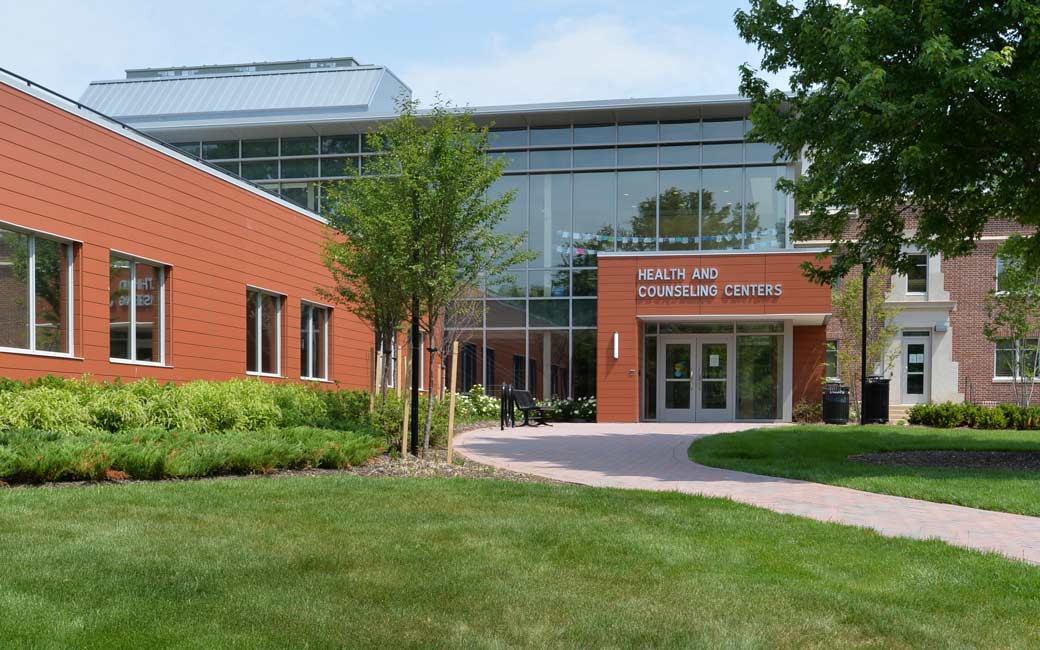How to cope with COVID-19 fatigue
A TU Counseling Center doctoral intern discusses some mental approaches to the pandemic as it continues and surges
By Matt Palmer on December 3, 2020

Doctoral intern Scott Peck started working at Towson University's Counseling Center in June, just months after the novel coronavirus pandemic came to the United States.
“COVID became part of the work of every college counselor in the country,” says Peck.
“I was at the Naval Academy when the pandemic began, and what happened there happened
at Towson and everywhere else. When talking with counselors at other universities,
they're all experiencing the same thing: COVID is intruding into students' lives and
taking away the coping mechanisms they had developed for themselves, like spending
time with friends and family or going to the gym. The challenge is to help students
find replacement mechanisms.”
With talk of “COVID fatigue” around the country, along with surges in cases and deaths, Peck answered a few questions for our newsroom about mental health during the pandemic.
As COVID-19 cases once again spike across the country, what advice can you give people feeling overwhelmed?
When faced with overwhelming facts you can't control, it's sometimes helpful to focus on things you can control. As simple as it sounds, even cleaning up a room or reorganizing a closet can remind you that you still have control over most aspects of your daily life. It's also important to allow space for your feelings, without judging them or fighting them. It's completely OK to be sad or overwhelmed or even experience panic. Fighting the feelings often makes them worse. Giving yourself permission to feel sad or scared or just have a really bad day will usually allow the feelings to gently pass.
And, of course, the Counseling Center is available for same-day appointments and round-the-clock phone support. So if you feel that you need to talk to someone, help is literally one phone call away.
Is there a healthy way for people to consume all of the information surrounding COVID-19?
No, not all of the information. If you find that you're checking news sites multiple times a day, ask yourself why you need to have minute-by-minute updates. Unless you're a journalist or epidemiologist, that's probably more information than you really need and much more than you can process. Sometimes deciding that you'll spend 10 minutes once in the morning and once in the afternoon checking a trusted news site is sufficient to get all the current information you need to know, without keeping yourself in a constant state of distress.
As people talk about “quarantine fatigue,” what advice do you give people to manage isolation successfully?
First, reduce the expectation that you “should” be feeling better or there are things you “should” be doing. Human aren't designed for long-term isolation, so of course we're feeling sad and exhausted and unmotivated. Give yourself a “hall pass” during the epidemic—permission to feel lonely or watch too much television or not exercise enough. Whatever you need to do. Give yourself a break. Be as kind to yourself as you would be to a friend who was going through something difficult, like a long-term illness. Imagine how much more patience you'd have with them than you do for yourself.
Students deal with so much in “normal times,” how can they positively handle these extraordinary moments?
This is so true. College is demanding enough under the best conditions. I would recommend not trying to handle it “positively.” Give yourself permission to feel angry, sad or whatever it is you feel. This is all extraordinary; there's nothing you “should” be doing that you're not.
For those who have had COVID-19 or know people who have, what avenues do they have to talk about the experience?
There are online forums, like Facebook and Reddit. But I think opportunities to hear other people's voices are extremely important. Although phone calls are not the social norm, try calling friends or loved ones so you have the experience of a connection without the pressure of video and Zoom fatigue after hours online for classes. Text is usually not the best way to feel connected with others. It gives us too much of an opportunity to edit what we're feeling instead of just saying it.
If students, faculty or staff are looking for assistance in relation to mental issues surrounding COVID-19, what resources are available?
The Counseling Center has increased the size of the staff and has added same-day appointments. There are no wait lists. If you contact the Counseling Center, you will speak to a therapist that same day, often right away. In addition, weekly individual therapy is now available online, even during the winter break. And during the regular term, we now have online resources, virtual support groups, meditation seminars and everything else that would be provided by the Counseling Center if we were all onsite.
This story is one of several related to President Kim Schatzel’s priorities for Towson University: TU Matters to Maryland and Diverse and Inclusive Campus.